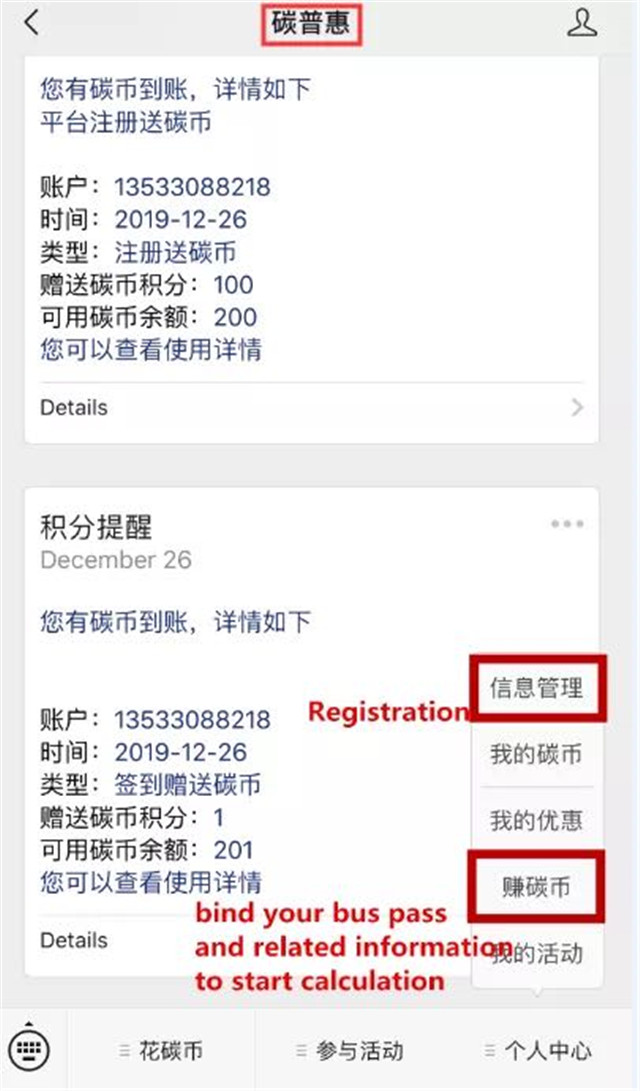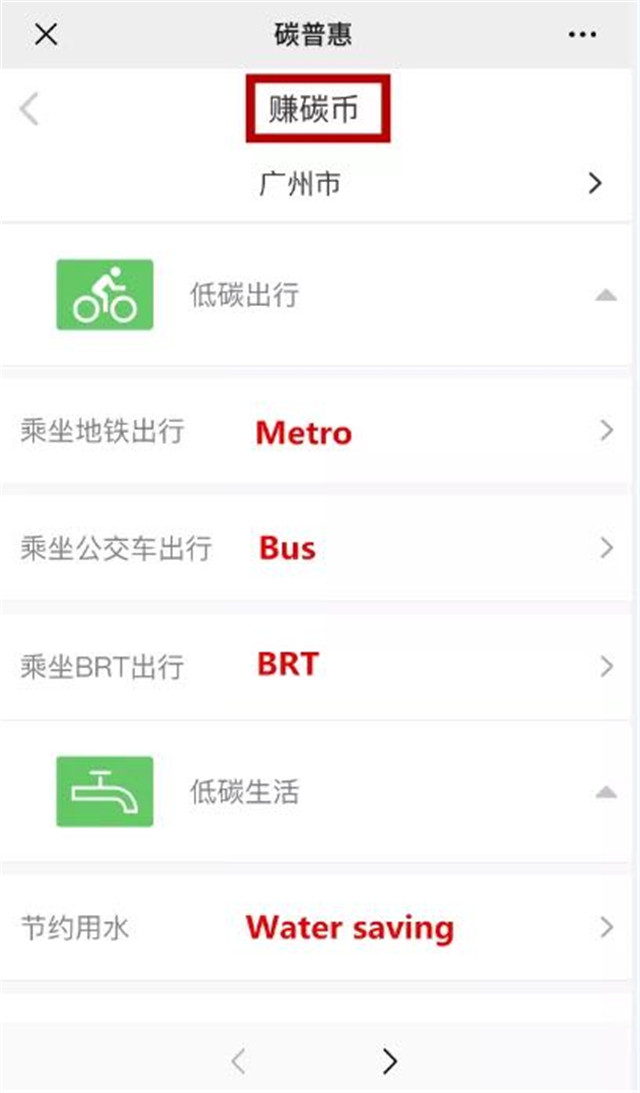People living in Guangzhou can now trade in their ‘step count’ for discount coupons, products and services. This offer extends to all kinds of environmental friendly behavior, and is being offered through the Tanpuhui (碳普惠) platform launched on December 24th.
To motivate the public to pursue a low-carbon lifestyle, the platform calculates how much carbon emissions can be reduced by a user’s activity and then allows them to claim ‘carbon coins’. Users can register via the WeChat account ‘碳普惠’ and spend your ‘carbon coins’ via the “碳普惠兑换平台” WeChat mini program.

Having uploaded information such as transport pass and house number on ‘碳普惠’, the platform is able to record more than 20 environmentally friendly activities, such as taking the bus, walking 10 thousand steps, riding a shared bike, water saving and waste recycling. The program then calculates the value of each behaviour transforming it in to ‘carbon coins’.

According to the platform organizer, users can redeem coins against more than 70 products including daily necessities, tickets for tourist attractions and membership of video streaming websites, such as Youku, iQIYI and v.QQ.com. Thus far, the platform has forged partnerships with a few hundred retailers, service providers and tourist agencies, and with an eye to expansion it will launch more products in the future.
In addition to the coin based reward system, users can register with the China Emissions Exchange (CEEX) and trade with Guangdong enterprises using their carbon emission reductions (CERs) after an official verification. The organizer suggests Mobike, the shared bike company as an example, saying the company has been trading CERs via CEEX over recent years and rewards its users with the profit.
The platform has been launched by the Guangzhou Municipal Ecological Environment Bureau. During a trial operation period, more than 70 thousand users followed the official account, and more than 8 thousand users have already registered on the platform.
This is the first ‘碳普惠’ platform to be launched anywhere in China. Guangdong started researching this system in 2016 and designated Guangzhou, Dongguan, Zhongshan, Huizhou, Shaoguan and Heyuan as the pilot cities for the roll out and a part of the GBA initiative.
Authors: Jasmine, Wang Yifan
Editors: Keane, Simon




